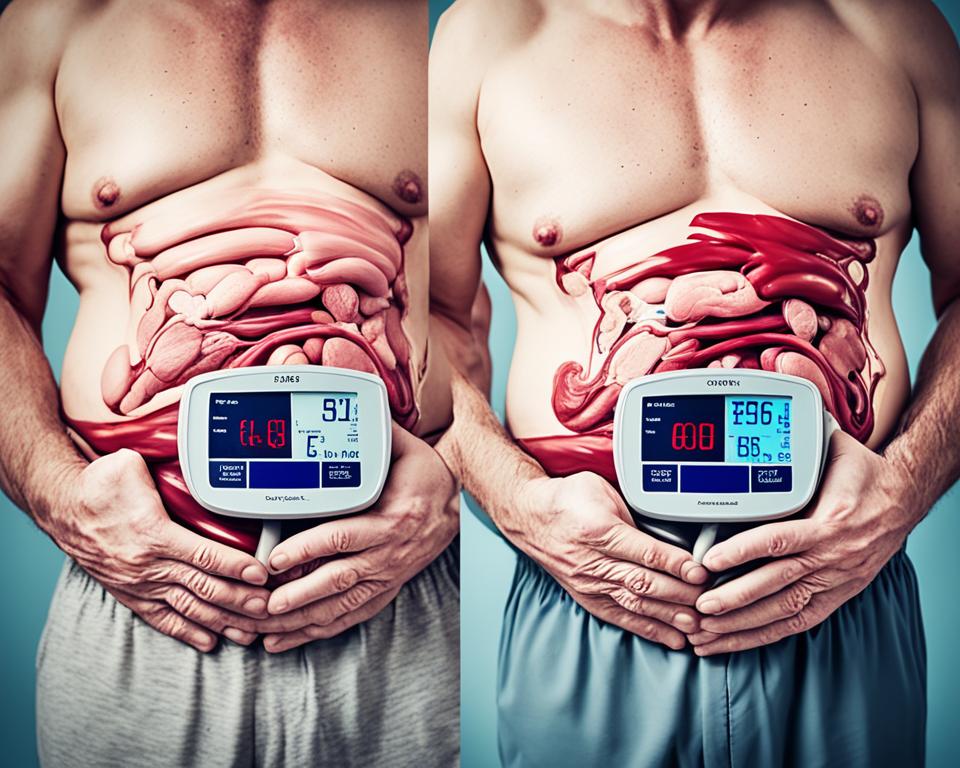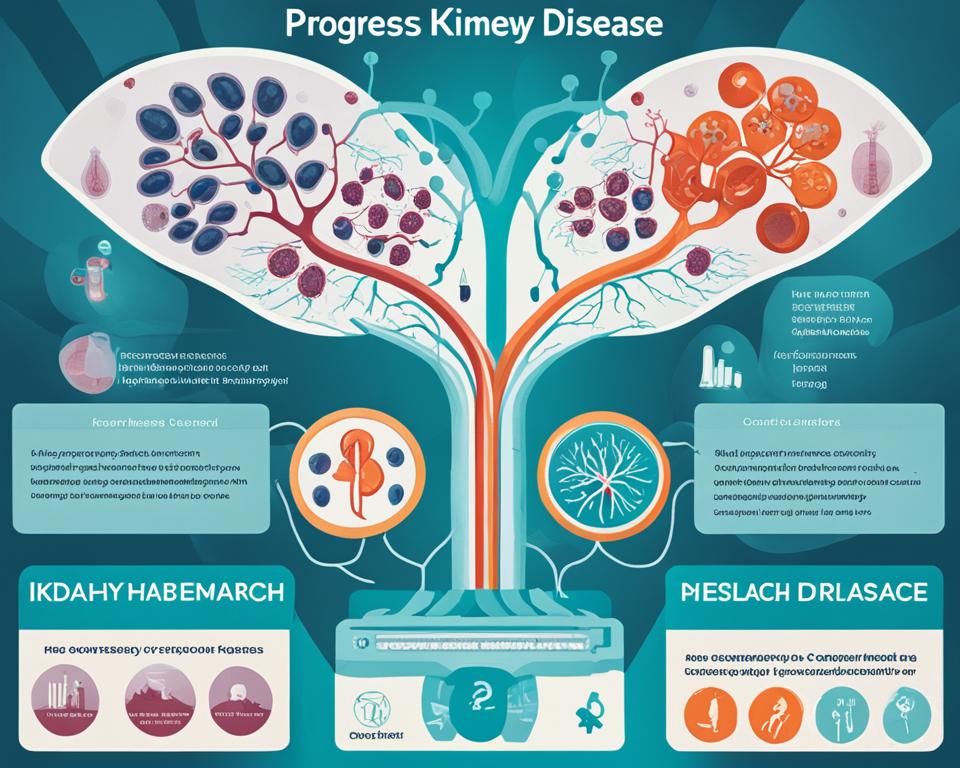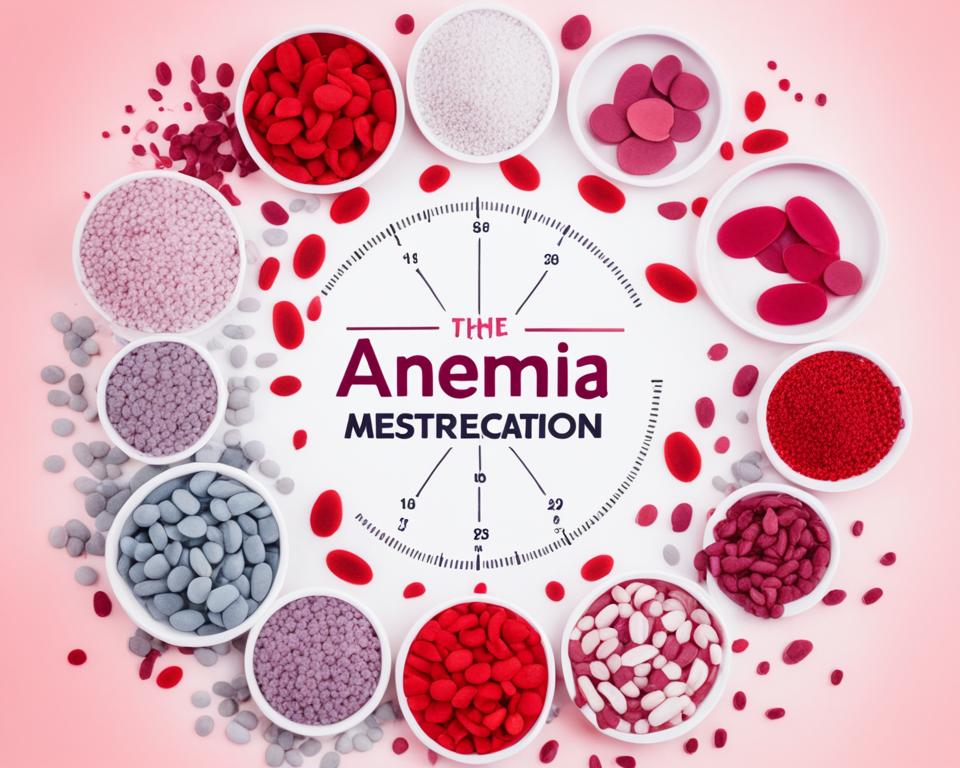Chronic kidney disease is a progressive condition that can ultimately lead to stage 5 kidney disease, also known as end-stage renal disease (ESRD). This advanced stage of kidney failure occurs when the kidneys can no longer effectively filter waste and excess fluids from the body, requiring dialysis or a kidney transplant to sustain life. Understanding the symptoms, causes, and available treatment options for stage 5 kidney disease is crucial for individuals affected by this complex condition.
This comprehensive article delves into the intricacies of stage 5 kidney disease, providing readers with a thorough understanding of the key aspects of this advanced stage of chronic kidney disease. From the definition and diagnostic markers to the various treatment modalities and dietary considerations, this article aims to empower individuals to better manage their condition and make informed decisions about their care.
Read interesting things at : climbing-gym-oz
Key Takeaways:
- Stage 5 kidney disease, or end-stage renal disease (ESRD), is the most severe stage of chronic kidney disease when the kidneys can no longer effectively filter waste and excess fluids from the body.
- Common symptoms of stage 5 kidney disease include fatigue, nausea, loss of appetite, swelling, and cognitive impairment.
- The leading causes of ESRD are diabetes and hypertension, which can damage the kidneys over time.
- Diagnosis typically involves a combination of blood tests, imaging studies, and, in some cases, a kidney biopsy.
- Treatment options for stage 5 kidney disease focus on renal replacement therapy, such as dialysis or kidney transplantation.
- Proper dietary management, including restrictions on protein, fluids, potassium, phosphorus, and sodium, is crucial for individuals with stage 5 kidney disease.
- Comprehensive, multidisciplinary care is essential for effectively managing stage 5 kidney disease and addressing the various aspects of the condition.
Understanding Stage 5 Kidney Disease
Stage 5 kidney disease, also known as end-stage renal disease (ESRD), is the final stage of chronic kidney disease when the kidneys can no longer effectively filter waste and excess fluids from the body. At this critical juncture, the kidneys have sustained significant damage, and their function has declined to a point where dialysis or a kidney transplant becomes necessary to sustain life.
Glomerular Filtration Rate and Kidney Function
The kidneys play a vital role in maintaining overall health by filtering blood, removing waste products, and regulating fluid balance. The glomerular filtration rate (GFR) is a key indicator of renal function, measuring the volume of fluid filtered by the kidneys per minute. In stage 5 kidney disease, the GFR typically falls below 15 mL/min/1.73m², indicating severely impaired kidney function and the need for immediate intervention to prevent life-threatening complications.
As the kidneys progressively lose their ability to filter blood and maintain homeostasis, individuals with stage 5 kidney disease experience a significant decline in their overall health and well-being. Understanding the nature of this advanced stage of chronic kidney disease is crucial for patients, caregivers, and healthcare professionals to navigate the complexities of management and ensure the best possible outcomes.
Symptoms of Stage 5 Kidney Disease
As the kidneys in stage 5 kidney disease, or end-stage renal disease (ESRD), gradually lose their ability to effectively filter waste and excess fluids from the body, individuals may experience a range of physical, emotional, and cognitive symptoms.
Physical Signs and Symptoms
Individuals with stage 5 kidney disease may exhibit various physical symptoms, including fatigue, nausea, vomiting, loss of appetite, swelling in the legs and feet, frequent urination, and changes in sleep patterns. These physical signs can be attributed to the buildup of waste products and the body’s inability to maintain proper fluid and electrolyte balance.
Emotional and Cognitive Symptoms
In addition to the physical manifestations, stage 5 kidney disease can also take a toll on an individual’s emotional and cognitive well-being. Patients may experience increased feelings of anxiety, depression, and stress as they grapple with the challenges of managing a chronic, life-threatening condition. Cognitive impairments, such as difficulty concentrating, memory problems, and confusion, can also arise due to the accumulation of waste products in the body.
Recognizing and addressing these physical, emotional, and cognitive symptoms is crucial for the effective management of stage 5 kidney disease and the overall well-being of the patient. A comprehensive, multidisciplinary approach involving healthcare professionals, support systems, and lifestyle modifications can help mitigate the impact of these symptoms and improve the quality of life for individuals living with end-stage renal disease.
Causes of End-Stage Renal Disease
The primary causes of end-stage renal disease (ESRD), or stage 5 kidney disease, are chronic conditions that can damage the kidneys over time. The two leading causes are diabetes and hypertension (high blood pressure).
Diabetes and Hypertension
Diabetes is the leading cause of ESRD, accounting for approximately 44% of all cases. High blood sugar levels associated with diabetes can gradually damage the small blood vessels and filters in the kidneys, impairing their ability to effectively remove waste and excess fluids from the body. Similarly, untreated or uncontrolled hypertension is another major contributor to ESRD, responsible for around 28% of cases. The increased pressure on the blood vessels in the kidneys can lead to scarring and impaired renal function over time.
Glomerulonephritis and Polycystic Kidney Disease
Other significant causes of ESRD include glomerulonephritis, a group of diseases that cause inflammation and damage to the glomeruli (the kidney’s filtering units), and polycystic kidney disease, a genetic disorder characterized by the formation of numerous cysts in the kidneys. These conditions can also gradually compromise kidney function, leading to ESRD if left untreated or unmanaged.
Diagnosis and Testing
Diagnosing stage 5 kidney disease, or end-stage renal disease, typically involves a combination of blood tests, imaging studies, and in some cases, a kidney biopsy. These diagnostic tools help healthcare providers assess the extent of kidney damage and determine the appropriate course of treatment.
Blood Tests for Creatinine Levels
One of the key indicators of kidney function is the level of creatinine in the blood. Creatinine is a waste product that is typically filtered out by the kidneys. As the kidneys lose their ability to filter effectively, creatinine levels in the blood begin to rise. Regular blood tests to monitor creatinine levels are essential for diagnosing and monitoring stage 5 kidney disease.
Imaging Studies and Kidney Biopsy
In addition to blood tests, healthcare providers may also order imaging studies such as ultrasounds, CT scans, or MRI scans to examine the structure and size of the kidneys. These tests can help identify any abnormalities or underlying causes of the kidney disease. In some cases, a kidney biopsy may be performed, where a small sample of kidney tissue is collected and examined under a microscope to provide a more detailed diagnosis.
The combination of blood tests, imaging studies, and in some cases, a kidney biopsy, allows healthcare providers to accurately diagnose stage 5 kidney disease and develop a comprehensive treatment plan to manage the condition effectively.
stage 5 kidney disease
Stage 5 kidney disease, also known as end-stage renal disease (ESRD), is the most severe stage of chronic kidney disease. At this stage, the kidneys have sustained significant and irreversible damage, and their function has declined to the point where they can no longer effectively filter waste and excess fluids from the body. Individuals with stage 5 kidney disease require dialysis or a kidney transplant to sustain life.
In stage 5 kidney disease, the glomerular filtration rate (GFR), which measures the kidney’s ability to filter waste, has declined to less than 15 ml/min/1.73m². This means the kidneys are functioning at a critically low level, and the body is unable to maintain proper fluid and electrolyte balance. As a result, waste and toxins accumulate in the body, leading to a wide range of symptoms and complications.
Individuals with end-stage renal disease may experience physical symptoms such as fatigue, nausea, loss of appetite, swelling, and changes in sleep patterns. They may also face emotional and cognitive challenges, including depression, anxiety, and difficulty concentrating. Prompt diagnosis and appropriate kidney failure treatment are essential to manage these symptoms and prevent further deterioration of kidney function.
Treatment Options for Stage 5 Kidney Disease
When the kidneys have reached stage 5, or end-stage renal disease, treatment options focus on renal replacement therapy, which involves either dialysis or a kidney transplant. These treatments aim to replace the essential functions of the damaged kidneys and help maintain the delicate balance of fluids, electrolytes, and waste products in the body.
Dialysis: Hemodialysis and Peritoneal Dialysis
Dialysis is a life-sustaining treatment for individuals with stage 5 kidney disease, or end-stage renal disease. There are two main types of dialysis: hemodialysis and peritoneal dialysis. Hemodialysis involves using a machine to filter the blood, while peritoneal dialysis uses the patient’s own abdominal lining (the peritoneum) as a filter.
Both hemodialysis and peritoneal dialysis can effectively remove waste, toxins, and excess fluid from the body, but they differ in terms of frequency, duration, and the way the filtration process is carried out. The choice between these dialysis options is often based on the patient’s individual medical and lifestyle factors, as well as their personal preferences.
Kidney Transplantation
For some individuals with stage 5 kidney disease, a kidney transplant may be the best treatment option. A kidney transplant involves replacing the damaged kidney with a healthy one, either from a living donor or a deceased donor. Kidney transplantation can offer a more permanent solution and improved quality of life compared to dialysis, as it can restore normal kidney function and eliminate the need for ongoing dialysis treatments.
Patients who are eligible for a kidney transplant undergo a thorough evaluation process to ensure they are medically and psychologically prepared for the procedure and the lifelong commitment of managing a transplanted kidney. The transplant team works closely with the patient to navigate the complex process, including finding a suitable donor, undergoing the surgery, and managing post-transplant care and medications.
| Treatment Option | Description | Advantages | Disadvantages |
|---|---|---|---|
| Hemodialysis | Blood is filtered through a machine, known as a dialyzer, to remove waste and excess fluids. |
|
|
| Peritoneal Dialysis | The patient’s abdominal lining (peritoneum) is used as a filter to remove waste and excess fluids. |
|
|
| Kidney Transplantation | A healthy kidney from a living or deceased donor is transplanted to replace the damaged kidney. |
|
|
Dietary Recommendations
Proper dietary management is a crucial aspect of caring for individuals with stage 5 kidney disease, or end-stage renal disease. The primary goals of the dietary recommendations are to limit the intake of certain nutrients that can accumulate in the body and cause further harm.
Protein and Fluid Restrictions
Patients with stage 5 kidney disease typically require protein restrictions to minimize the buildup of waste products, such as urea and creatinine, in the body. The recommended daily protein intake is typically between 0.6 to 0.8 grams per kilogram of body weight. Additionally, fluid restrictions are often necessary to prevent the accumulation of fluids, which can lead to edema, high blood pressure, and other complications.
Potassium, Phosphorus, and Sodium Management
Individuals with stage 5 kidney disease also need to carefully manage their potassium, phosphorus, and sodium intake. High levels of these minerals can contribute to various health issues, including heart problems, bone disorders, and fluid imbalances. A registered dietitian can work closely with the patient to develop a personalized meal plan that helps manage these nutrients and minimize the risk of complications.
Chronic Kidney Disease Management
Effective management of
stage 5 kidney disease
, or end-stage renal disease, requires a comprehensive,
multidisciplinary approach
. Patients may work with a team of healthcare professionals, including nephrologists, nurses,
dietitians
, social workers, and other specialists, to address the various aspects of their care.
Multidisciplinary Care Team
The
multidisciplinary care team
plays a crucial role in the management of
chronic kidney disease
. These professionals work together to develop a personalized treatment plan, monitor the patient’s health, and provide educational and emotional support. By collaborating, they can ensure that all aspects of the patient’s care, from medical treatment to lifestyle modifications, are addressed effectively.
Lifestyle Modifications
In addition to medical treatment,
lifestyle modifications
are an important component of
chronic kidney disease management
. Patients may be encouraged to make changes to their diet, exercise routine, and other daily habits to help slow the progression of the disease and improve their overall well-being. These modifications may include reducing the intake of certain nutrients, staying hydrated, and engaging in regular physical activity.
By adopting a comprehensive, multidisciplinary approach and implementing appropriate lifestyle changes, individuals with
stage 5 kidney disease
can work to manage their condition and improve their quality of life.
Complications of End-Stage Renal Disease
Individuals with stage 5 kidney disease, or end-stage renal disease, are at an increased risk of developing various complications due to the accumulation of waste products and the body’s inability to maintain proper fluid and electrolyte balance. Two of the most significant complications associated with this advanced stage of chronic kidney disease are cardiovascular complications and bone and mineral disorders.
Cardiovascular Complications
Cardiovascular complications are a leading cause of morbidity and mortality among individuals with stage 5 kidney disease. The buildup of waste products, disrupted fluid and electrolyte balance, and other factors can contribute to the development of conditions such as hypertension, heart failure, coronary artery disease, and arrhythmias. Regular monitoring and management of these cardiovascular complications are crucial for improving patient outcomes.
Bone and Mineral Disorders
Bone and mineral disorders are another common complication of end-stage renal disease. The decline in kidney function leads to the imbalance of key minerals, such as calcium, phosphorus, and parathyroid hormone, which can result in conditions like renal osteodystrophy, osteoporosis, and calciphylaxis. Carefully managing these bone and mineral disorders is essential to maintain bone health and prevent associated complications.

| Complication | Description | Risk Factors |
|---|---|---|
| Cardiovascular Complications | Includes conditions like hypertension, heart failure, coronary artery disease, and arrhythmias. | Fluid and electrolyte imbalances, inflammation, anemia, and other factors related to stage 5 kidney disease. |
| Bone and Mineral Disorders | Conditions like renal osteodystrophy, osteoporosis, and calciphylaxis due to imbalances in calcium, phosphorus, and parathyroid hormone. | Declining kidney function, dietary restrictions, and hormonal changes associated with end-stage renal disease. |
Emotional and Psychological Support
Managing stage 5 kidney disease, or end-stage renal disease, can be physically and emotionally challenging for patients and their loved ones. The burden of managing a chronic, life-threatening condition can take a significant toll on an individual’s mental and emotional well-being. It is crucial to address the emotional support for stage 5 kidney disease and provide comprehensive psychological support to help patients navigate this difficult journey.
The emotional and psychological impact of end-stage renal disease can manifest in various ways, including feelings of anxiety, depression, grief, and a sense of loss of control. Patients may experience a range of emotions as they come to terms with their diagnosis and the necessary lifestyle changes, such as dietary restrictions and the initiation of dialysis or transplantation.
To support the emotional and psychological well-being of individuals with stage 5 kidney disease, a multidisciplinary care team may include mental health professionals, such as therapists, counselors, and social workers. These specialists can provide emotional support through individual and group therapy sessions, helping patients develop coping strategies, manage stress, and find meaning in their experiences.
Moreover, support groups and educational resources can be invaluable in helping patients and their families navigate the challenges of end-stage renal disease. By connecting with others who share similar experiences, patients can find a sense of community, share their struggles, and learn from one another’s resilience.
Addressing the emotional and psychological support needs of individuals with stage 5 kidney disease is a critical aspect of comprehensive care. By prioritizing the mental and emotional well-being of patients, healthcare providers can help them better manage the physical and practical demands of their condition, ultimately improving their quality of life and overall outcomes.
Renal Replacement Therapy Evaluation
When an individual reaches stage 5 kidney disease, or end-stage renal disease, they will need to undergo renal replacement therapy, either in the form of dialysis or a kidney transplant. Preparing for this transition is crucial, as it will significantly impact the patient’s quality of life and long-term health outcomes.
Preparing for Dialysis or Transplantation
Patients with stage 5 kidney disease should work closely with their healthcare team to explore the available renal replacement therapy options and begin the necessary preparations. This may involve undergoing tests, meeting with specialists, and making lifestyle adjustments to ensure a smooth transition into either dialysis or kidney transplantation.
For those choosing dialysis, the patient may need to have a vascular access point, such as a fistula or graft, surgically created to facilitate the dialysis process. Peritoneal dialysis patients may require the implantation of a peritoneal dialysis catheter. Advance planning for these procedures is essential to ensure timely and effective dialysis preparation.
Individuals considering a kidney transplant will undergo an extensive evaluation process to determine their eligibility and identify a suitable donor, if necessary. This may involve medical tests, psychological assessments, and discussions with the transplant team to ensure the patient is physically and emotionally prepared for the procedure and the lifelong commitment of post-transplant care.
Support Resources and Education
Navigating the complexities of stage 5 kidney disease and the transition to renal replacement therapy can be overwhelming for patients and their families. Healthcare providers often connect individuals with a range of support resources and educational materials to help them understand their condition, make informed decisions, and manage the various aspects of their care.
These resources may include support groups, counseling services, financial assistance programs, and educational workshops that cover topics such as dialysis preparation, kidney transplantation, dietary management, and coping strategies. By accessing these support resources and educational opportunities, patients can better prepare for and manage their stage 5 kidney disease journey.
Advances in Kidney Disease Research
The field of kidney disease research is constantly evolving, with ongoing efforts to develop new treatments, improve patient outcomes, and explore preventive strategies. Researchers are actively investigating emerging treatments and clinical trials that hold promise for individuals with stage 5 kidney disease, also known as end-stage renal disease (ESRD).
Emerging Treatments and Clinical Trials
Advancements in kidney disease research have led to the development of novel therapies and the exploration of innovative treatment approaches. Clinical trials are underway to evaluate the efficacy and safety of emerging treatments for ESRD, including gene therapies, stem cell-based therapies, and targeted drug therapies. These cutting-edge interventions aim to slow the progression of kidney disease, enhance the management of symptoms, and potentially restore kidney function in some cases.
Preventive Strategies and Early Detection
In addition to new treatments, researchers are also focused on preventive strategies and early detection of kidney disease. By identifying risk factors and implementing targeted screening programs, healthcare providers can potentially intervene at earlier stages of the disease, allowing for more effective management and potentially preventing the progression to stage 5 kidney disease. Emphasis is being placed on identifying genetic markers, improving diagnostic tools, and implementing lifestyle modifications to mitigate the risk of developing chronic kidney disease.

Conclusion
In the comprehensive exploration of stage 5 kidney disease, or end-stage renal disease, we have delved into the defining characteristics, symptoms, causes, and treatment options for this critical stage of chronic kidney disease. As the kidneys’ function declines to a point where dialysis or a kidney transplant becomes necessary, understanding the key aspects of this condition is crucial for effective management and improved patient outcomes.
Through the detailed examination of diagnostic tests, dietary recommendations, and comprehensive care approaches, this article has aimed to empower readers with the knowledge and resources to navigate the complexities of stage 5 kidney disease. By recognizing the early warning signs, addressing the underlying causes, and exploring the available treatment modalities, individuals with this condition can take an active role in their care and work closely with their healthcare team to maximize their quality of life.
In summary, the journey through stage 5 kidney disease and end-stage renal disease is a complex one, but with the right information, support, and proactive management, patients can strive to maintain their health and well-being to the fullest extent possible. The key takeaways from this article serve as a foundation for understanding and addressing this challenging stage of kidney disease, empowering individuals to make informed decisions and take control of their health.



